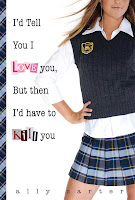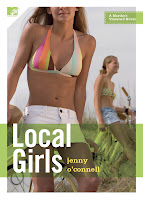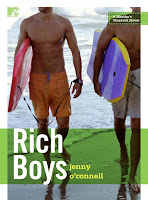STATUS: It’s time for sleep I think.
What’s playing on the iPod right now? LOVE SONG by Sara Bareilles
I didn’t start this blog week with the thought it was going to be an all Ally Carter litfest but it’s really turning out to be.
Maybe because I’ve got Ally on the brain. You see, I just finished reading the final copy-edited version of book 3 in the Gallagher Girl Series. Yes, it has a title but I don’t think that has been revealed as of yet so I’m not going to share.
This might sound odd but when an agent has a hugely successful author, one of our greatest fears is whether the author can live up to her previous books. For my part, there will always be a special place in my heart for LYKY because, of course, that book was the first. Kind of hard to top–especially when I think of the scene where Macey comes to the rescue in a golf cart. Truly, one of my favorite YA scenes of all time.
But then for book 2, there was the whole Josh versus Zach and it’s hard to top the dance scene.
And then there’s book 3 in the series. All I can say is that hands down, this is Ally’s best book. And I’m not just saying that because I’m the agent. It really is her best work. And just to be a tease, you might want to go out and rent Cary Grant’s North By Northwest. I’ll say no more.
But my blogs don’t tend to be pointless so why am I waxing poetic about Ally tonight? Because I was just over at her blog reading about the wrong questions aspiring young adult writers were asking at a recent conference Ally attended and I couldn’t help but think about my own YA workshop at Rocky Mountain Fiction Writers this past weekend. I, too, thought the attendees had good questions but ultimately they were asking the wrong questions. They were focused on the minutiae. How long should a YA novel be? What is and what is not allowed in novels for this audience? How do I write a novel that will be a bestseller? (And the truth is there is no way to answer that question—as I’ve discussed this week).
For me, aspiring writers often want the magic bullet point list—as in if they do XYZ, that will guarantee success.
I’m here to tell you that there is no magic list. Sorry to disappoint. But there are the right questions to ask. So go and find out what they are and what the difference really is between writing for adults versus young adults.



